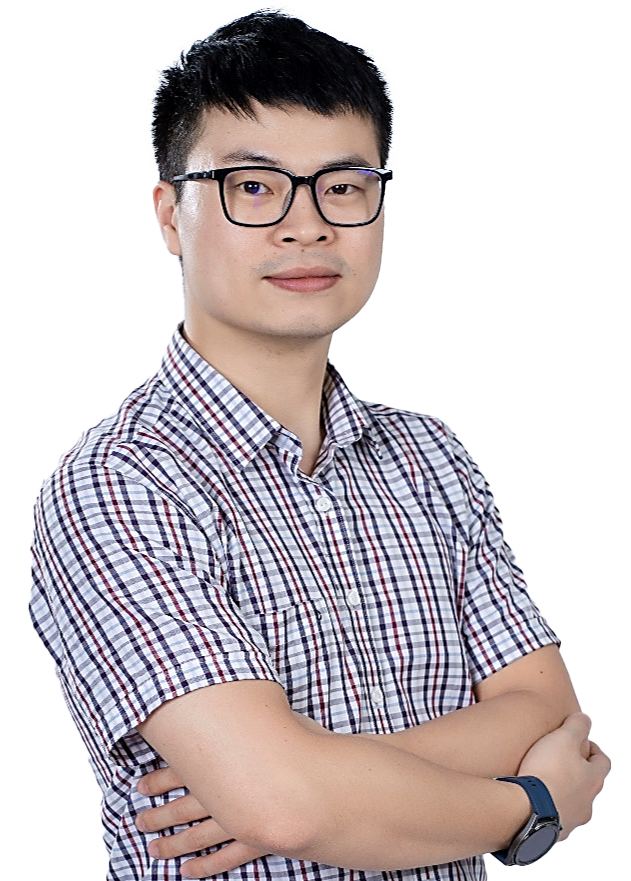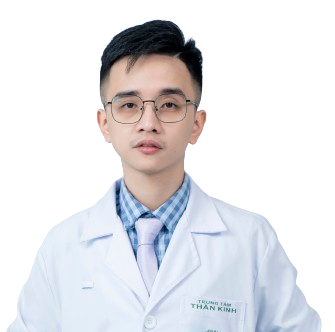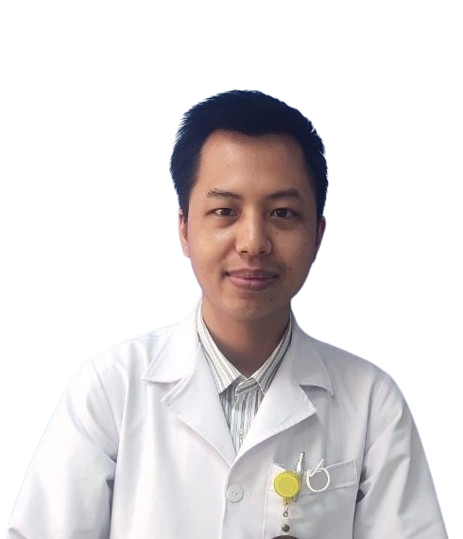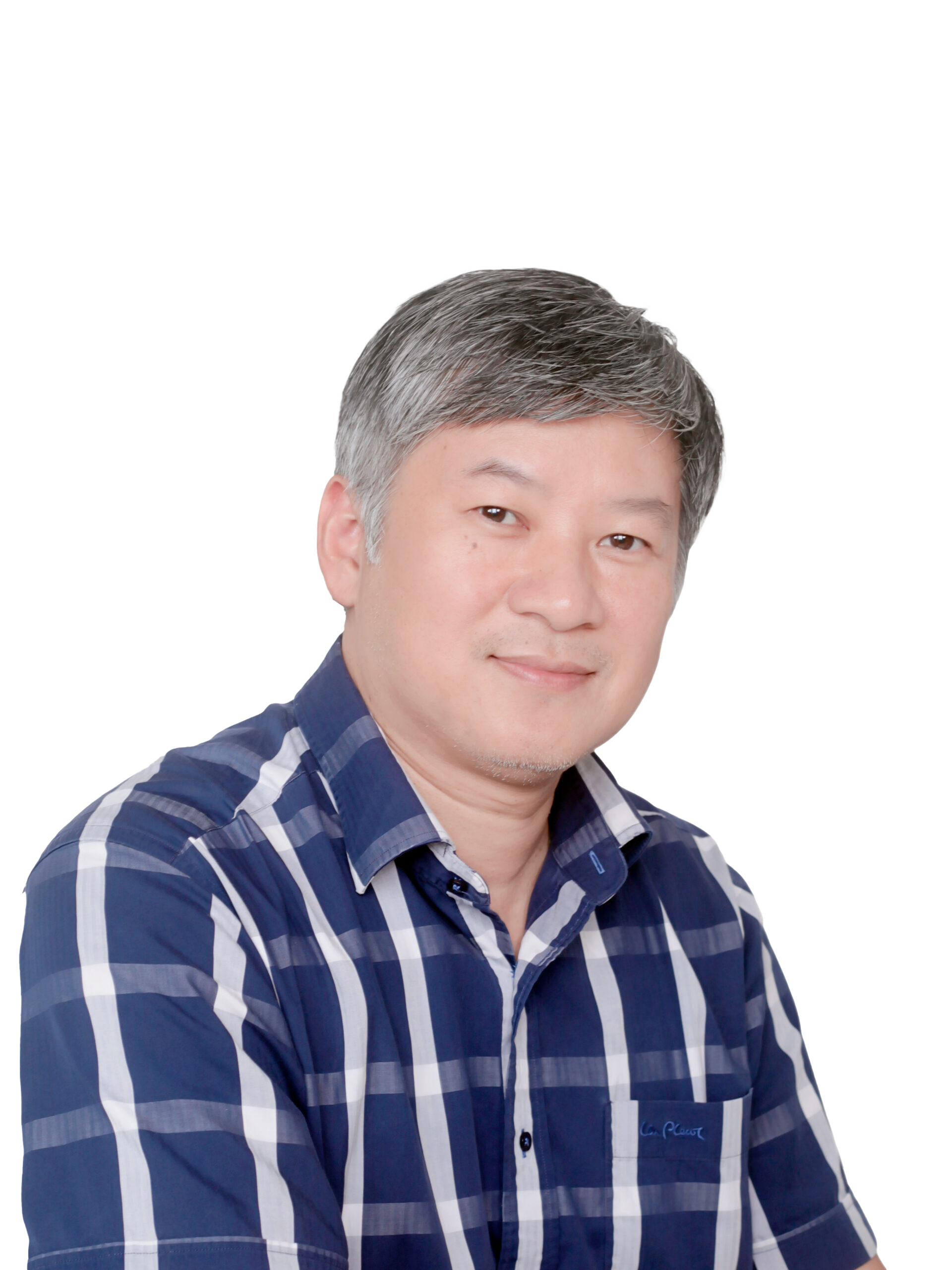 GS.BS.TS. Sebastiaan Engelborghs (Trường Đại học Tự do Bruxelle (VUB))
GS.BS.TS. Sebastiaan Engelborghs (Trường Đại học Tự do Bruxelle (VUB))
Tiêu đề: Chẩn đoán và điều trị bệnh Alzheimer tại Bỉ Tóm tắt: Chẩn đoán Alzheimer yêu cầu một cách tiếp cận liên ngành bao gồm nhiều bước, từ đánh giá bệnh sử đến thăm khám thần kinh. Báo cáo tổng quan những kết quả hiện tại cũng như những khó khăn trong các phương pháp hiện nay, hướng đến phát hiện kịp thời Alzheimer, bao gồm chẩn đoán các dấu hiệu sinh học, phân tích DNA, APOE. Các phương pháp điều trị Alzheimer hiện nay như điều trị dùng thuốc, thực hiện các hoạt động trí tuệ, điều chỉnh lối sống cũng được đề cập. Báo cáo cũng giới thiệu tiềm năng của phương pháp điều trị giảm nhẹ trong phát hiện và điều trị Alzheimer cũng như nâng cao nhận thức y tế, kinh tế xã hội liên quan. Tiểu sử: Sebastiaan Engelborghs is full professor of neurology and neurosciences at Vrije Universiteit Brussel (VUB), chair of research group NEUR (Neuroprotection & Neuromodulation) , co-director of the VUB Center for Neurosciences (C4N) and chairman of the neurology department of the VUB university hospital (UZ Brussel). He is co-founder and co-director of the transdisciplinary memory clinic in UZ Brussel, Brussels Integrated Center for Brain and Memory (Bru-BRAIN). He as well is full professor of neurosciences and neurochemistry at University of Antwerp. Sebastiaan Engelborghs is board certified in clinical neurology (2001) and neurological revalidation medicine (2009). He achieved a PhD in medical sciences in 2004 and has interdisciplinary expertise in clinical neurology and neurosciences, including electrophysiology, neuroimaging, biochemistry, neurogenetics and neuropathology. Both clinically and with regard to research, he is specialized in neurodegenerative brain disorders that cause dementia. He has built up expertise in clinical trials for AD and related disorders for more than 25 years and was PI as well as national or global coordinating physician for several clinical trials, as well as being involved in the design of some of these clinical trials. Based on license agreements with ADx Neurosciences (2012) and Epilog (2017), these companies became UAntwerp spin-off companies with Sebastiaan Engelborghs as promoter. He is co-inventor of patent EP3452830B1 (2022), an assay for the diagnosis of neurological diseases like Alzheimer’s. Sebastiaan Engelborghs serves as co-chair of the European Alzheimer Disease Consortium, as co-chair of the dementia and cognitive disorders scientific panel (SP) and is vice-president of the Belgian Dementia Council (BeDeCo). He is (co-)author on 420 PubMed-cited papers in international peer-reviewed journals and 19 book chapters which results in 28.811 citations without self-citations, and a WoS h-index of 77 (11 MAR 2024). |
 BS.TS Nguyễn Tiến Dũng (Trường Đại học Y Dược - ĐHQGHN)
BS.TS Nguyễn Tiến Dũng (Trường Đại học Y Dược - ĐHQGHN)
Tiêu đề: Áp dụng công nghệ trong tai biến mạch máu não: chẩn đoán và điều trị. Tóm tắt: In the past 20 years, stroke has made leaps and bounds to help improve the outcome of death and disability for patients. One of the contributions to this success is the application of technological achievements in diagnosing and treating stroke. In ischemic stroke, Time is Brain; the sooner the patient is treated with reperfusion, the higher the chance of recovery. AI technology has shortened the time to select patients with acute ischemic stroke due to large artery occlusion and indicated mechanical thrombectomy intervention based on ASPECT parameters, infarct core volume, and penumbra volume… In the later stages of stroke, applying robot guidance and rehabilitation exercises for patients has also brought good results. Tiểu sử: From 2013-2020, Dr. Nguyen Tien Dung was with the Emergency Department A9, Bach Mai Hospital. Since 2020, he is with the Stroke Center - Bach Mai Hospital, where he is currently the Deputy Director. Dr. Nguyen Tien Dung is also with the Department of Stroke and Cerebrovascular Disease, UMP-VNU and the Deputy General Secretary of the Hanoi Stroke Association. He loves stroke research, including new modern diagnostic and effective treatment methods worldwide. His Bach Mai Hospital Stroke Center is one of the prestigious research positions in which he has participated in many international studies. He actively participates in scientific activities programs and teaches colleagues at grassroots hospitals to update new knowledge. |
 ThS.BS. Võ Thế Nhân (Trung tâm Thần kinh, Bệnh viện Bạch Mai)
ThS.BS. Võ Thế Nhân (Trung tâm Thần kinh, Bệnh viện Bạch Mai)
Tiêu đề: Ứng dụng công nghệ cao trong chẩn đoán và điều trị bệnh lý Thần kinh - Thực trạng tại Trung tâm Thần kinh, Bệnh viện Bạch Mai Tóm tắt: Nowadays, modern technologies, especially artificial intelligence, are becoming a trend that receives attention in many fields of medicine. Neurological disorders often have diverse manifestations, leading to difficulties in diagnosis. Making treatment decisions and predicting treatment outcomes also require timeliness and high accuracy, such as in the management of acute ischemic stroke. Therefore, the implementation of modern technologies has brought many benefits to the field of neurology. We would like to share our situation at the Neurology Center, Bach Mai hospital. Tiểu sử: Vo The Nhan obtained MSc degree in Neurology from Hanoi Medical University in 2021. Currently, he is working at the Neurology Center, Bach Mai Hospital. His major interests focus on the field of cerebral stroke, epilepsy, and electroencephalography. |
 GS.BS.TS. Guy Nagels
(Trường Đại học Tự do Bruxelle (VUB))
GS.BS.TS. Guy Nagels
(Trường Đại học Tự do Bruxelle (VUB))
Tiêu đề: Phương pháp học máy theo mô hình liên kết ứng dụng trong khoa học thần kinh Tóm tắt: Các nghiên cứu về sa sút trí tuệ đều dựa trên sự phát triển của các dấu hiệu sinh học đặc trưng từ dữ liệu hóa học-, sinh lý học thần kinh và hình ảnh não bộ. Các phương pháp phân tích dữ liệu hiện nay, bao gồm cả học sâu, có yêu cầu rất lớn về khối lượng dữ liệu, đồng thời cũng đưa ra thách thức trong việc tập trung hóa các dữ liệu trên. Báo cáo trình bày về việc sử dụng học liên kết trong nghiên cứu về sa sút trí tuệ trong một mạng lưới các cơ sở nghiên cứu về thần kinh tại châu Âu. Phiên trình bày cũng hướng tới việc tìm hiểu về nhu cầu cũng như cơ hội cho dạng mạng lưới cơ sở nghiên cứu này tại Việt Nam. Tiểu sử: As associate chair of neurology at the UZ Brussel, and as former head of neurology at the National Multiple Sclerosis Centre Melsbroek in Belgium, my clinical focus is diagnosis, treatment, and rehabilitation in multiple sclerosis (MS). Cognition is an important though often underrated aspect of MS, and this has caused my research focus to grow into the modeling of cognition in MS and other neurodegenerative disorders. The combination of my clinical neuroscience background, together with my formal training as a computer science engineer, sets the stage for the development of more informed and more performant models of cognition. To this end, I have gathered a multidisciplinary team consisting of engineers, psychologists, and fellow neurologists. Together we form the Artificial Intelligence Supported Modelling in Clinical Sciences (AIMS) group, part of the centre for neurosciences (C4N) of the Vrije Universiteit Brussel (VUB), where I am full professor of digital medicine. Our AIMS group works in close collaboration with the Oxford centre for Human Brain Activity (Prof. Mark Woolrich), where I hold academic visitor status since 2012, with the MRI department at the UZ Brussel, with the statistics and AI department of the university of Lausanne (Prof. Oliver Chen), with international MS centers and with industrial partners such as the spinoff neuroimaging company icometrix nv. Since October 2019, I hold a senior clinical research fellowship with the FWO, allowing me to combine half time clinical work in neurology with half time research on neurophysiological and machine learning aspects of cognition, and since 2022 I am a fellow by election of the Royal Academy of Medicine in Belgium. |
 ThS.BS. Nguyễn Ngọc Vĩnh Yên (Đơn vị đột quỵ, Khoa Cấp cứu, Bệnh viện E)
ThS.BS. Nguyễn Ngọc Vĩnh Yên (Đơn vị đột quỵ, Khoa Cấp cứu, Bệnh viện E)
Tiêu đề: Đánh giá hiệu quả của phương pháp tái thông mạch máu trong nhồi máu não cấp tại Bệnh viện E Tóm tắt: Các phương thức điều trị tái thông mạch não bắt đầu được thực hiện tại Việt Nam từ 20 năm trước, dần trở thành các tiêu chuẩn điều trị bắt buộc đối với các cơ sở thực hành lâm sàng, các bệnh viện. Nhiều nghiên cứu đã được tiến hành trên các tiêu chí đơn lẻ, nhằm đánh giá hiệu quả điều trị của từng phương pháp tái thông mạch não trên đối tượng người Việt Nam. Nghiên cứu của chúng tôi tiến hành tổng kết kết quả điều trị của một đơn vị đột quỵ trong gần 4 năm điều trị đột quỵ nhồi máu não cấp. Chúng tôi muốn đưa đến một cái nhìn khác về kết quả điều trị tái thông mạch não trong nhồi máu não cấp ở người Việt Nam Tiểu sử: Tốt nghiệp Đại học Y Hà Nội năm 2016, sau quá trình đạo tạo định hướng cơ bản, BS Nguyễn Ngọc Vĩnh Yên làm việc tại Khoa Cấp cứu – Bệnh viện E từ 2018 đến nay. Đồng hành cùng sự hình thành và phát triển của Đơn vị đột quỵ Bệnh viện E – trực thuộc khoa Cấp cứu, Bs Yên tham gia trực tiếp quá trình điều trị, thu thập số liệu, tổng kết và báo cáo kết quả điều trị của Đơn vị đột quỵ. Thành tích nổi bật tại Đơn vị đột quỵ là 5 quý liên tiếp đạt GOLD Award và 1 quý đạt Platinum Award của Sáng kiến Angles (Angels Initiative – Bohringer). |
 PGS.TS. Nguyễn Linh Trung (Trường Đại học Công Nghệ - ĐHQGHN)
PGS.TS. Nguyễn Linh Trung (Trường Đại học Công Nghệ - ĐHQGHN)
Tiêu đề: Trí tuệ nhân tạo hỗ trợ chẩn đoán hình ảnh bệnh Alzheimer. Tóm tắt: Cùng với sự tiến bộ trong lĩnh vực học máy và trí tuệ nhân tạo, chúng ta đang chứng kiến những tiến bộ đáng kể trong việc chẩn đoán và điều trị bệnh Alzheimer nói riêng và các bệnh liên quan đến thoái hóa thần kinh nói chung. Thông qua việc khai thác thông tin từ các hình ảnh thần kinh, như MRI và PET, các mô hình học máy và trí tuệ nhân tạo có thể hỗ trợ phát hiện sớm các dấu hiệu sinh học liên quan đến bệnh Alzheimer. Báo cáo sẽ trình bày sơ lược về các hướng ứng dụng chính của học máy và trí tuệ nhân tạo đã được sử dụng cho chẩn đoán bệnh Alzheimer, cùng với các nhóm phương pháp và mô hình được cho là hiệu quả nhất. Bên cạnh, báo cáo sẽ nêu lên một số vấn đề mở và tiếp cận của chúng tôi, như trong tích hợp và kết hợp dữ liệu, mô hình nhận biết có thể giải thích được, học máy liên kết từ các cơ sở dữ liệu giữa các cơ sở y tế mà vẫn giữ được tính riêng tư, chẩn đoán đa bệnh, cũng như sử dụng các loại xét nghiệm chi phí thấp như mắt hay điện não. Tiểu sử: Nguyen Linh Trung obtained his B.Eng. and Ph.D. degrees, both in Electrical Engineering, from Queensland University of Technology, Brisbane, Australia, in 1998 and 2005. Since 2006, he has been on the faculty of VNU University of Engineering and Technology (VNU-UET), a member university of Vietnam National University, Hanoi (VNU), where he is currently an associate professor of electronic engineering in the Faculty of Electronics and Telecommunications and director of the Advanced Institute of Engineering and Technology (AVITECH) of VNU-UET. He is interested in signal processing methods, including time-frequency signal analysis, blind source separation, compressive sampling, tensor-based signal analysis, graph signal processing, and apply them to wireless communication and networking, biomedical engineering, with a current focus on large-scale processing. |